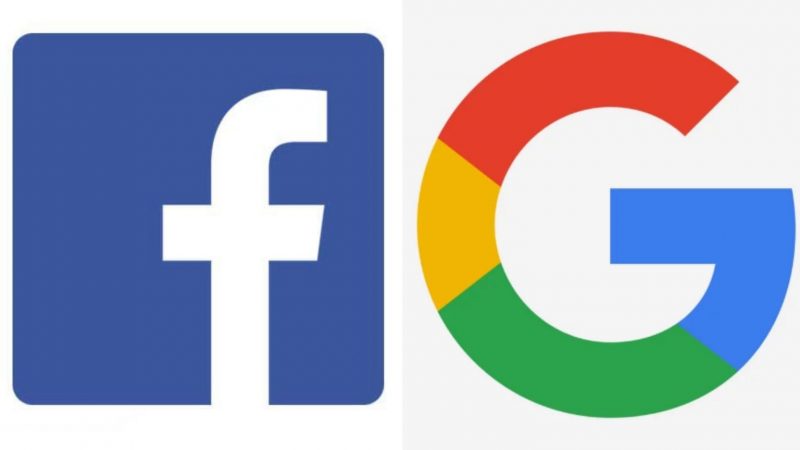News Media Bargaining Code should become law, concludes senate committee
The News Media Bargaining Code bill should be passed, “despite the concerns raised”, the senate economics legislation committee has concluded in a report released this afternoon.
“The committee is confident that the bill will deliver on its intended outcomes. Its provisions will provide the basis for a more equitable relationship between the media and Google/Facebook and, through this, help safeguard public interest journalism in Australia,” stated the report. “Accordingly, the committee recommends that the bill be passed.”

The bill will now progress to a vote in the Senate as soon as next week, and if passed would become a world-first piece of legislation binding the digital platforms to negotiate with publishers, and progress to arbitration if the parties cannot agree on a price for news.
“The committee notes that even supporters of the bill, felt that further amendments were possible to improve the law. Free TV recommended a series of amendments, as did SBS, the ABC, the MEAA [Media, Entertainment, and Arts Alliance] and Solstice Media, amongst others,” the 53-page report released late this afternoon stated.
“Treasury also acknowledged that, despite the many and varied consultations and legal advice, that as is commonly the case for all legislation: ‘there are legal risks associated to the bill, both domestic and international.’ Treasury also noted that the government, in developing the bill, had considered its domestic and international law obligations.
“The committee accepts that there remains the possibility that not all risks have been taken into account, and that further refinement may be needed to the arbitration mechanism and other parts of the code so that they work in an optimum manner. Accordingly, the committee strongly supports the 12 month review mechanism built into the legislation.”
The committee, comprised of senators Andrew Bragg, Slade Brockman, Alex Gallacher, Sarah Hanson-Young, Jenny McAllister, Susan McDonald and Rex Patrick , also commented that “public interest journalism is more than just an ordinary consumer product that has been undermined or ‘disrupted’ by new technology; rather public interest journalism is a cornerstone of democracy and its survival is imperative in a society increasingly vulnerable to misleading information that can so easily be spread on the internet”.
“While the evidence received demonstrated some polarised views on the bill, there is significant support for the bill’s aims,” the report said.
“Further, while some submitters have questioned the methods and recommended additional refinements, there is a strong view that large multinational technology companies—in this case Google and Facebook—should not remain outside sensible regulations that protect the public interest.”

Google MD Mel Silva
The report follows two recent days of hearing on Friday 22 January and Monday 1 February, at which the digital platforms, Treasury, and various news outlets presented arguments for or against the code generally, and in its existing form.
Nine promptly welcomed the report’s contents, with a spokesperson stating it “again highlights the need for action to level the playing field between Australian media and the global tech monopolies and ensure the ecosystem remains sustainable for those who create journalism”.
“We want to thank the ACCC, the government and the Parliament who have all now examined the issues at play exhaustively. Now is the time for action and for the media code to be legislated,” the spokesperson added.
In a joint statement, Treasurer Josh Frydenberg and Communications Minister Paul Fletcher said the government “expects all parties to continue to work constructively towards reaching commercial agreements in the spirit of collaboration and good faith encouraged by the Code.
“The Code will be reviewed by Treasury one year after its operation to ensure it is delivering outcomes that are consistent with the government’s policy intent.”
Earlier today, the responses to the questions each of the companies that fronted the committee took on notice were released.
Google maintained that the code needs “straightforward” amendments in order to be workable, allowing it to pay publishers through the News Showcase program, launched a week ago, without paying for links.
“The withdrawal of Search from Australia isn’t a threat; it’s a worst-case scenario that we’re working hard to avoid,” the search engine giant said of its comments in the first senate committee hearing on 22 January. During that hearing, managing director Mel Silva said Google would have to withdraw its search function from the market should the bill be passed.
The company said that while news outlets including Australian Community Media, Private Media, Schwartz Media, The Conversation, and Solstice Media were happy with the deals entered into, other publishers have used the code to drive up their asking price.
“Feedback on the contract terms has also been positive, with only minor ‘redlines’ on all progressed deals,” Google continued.
“Feedback on financial terms has varied. Signed partners were satisfied with the negotiated terms and disappointed to see the product go on hold as a result of the pendency of the code.
“Other news publishers have made unrealistic counter offers (and even significantly increased their counter-offers to commercially infeasible levels), after seeing a draft code with arbitration clauses heavily biased in favour of publishers.”
Mumbrella has contacted Facebook, Google, Guardian Australia and News Corp for comment.



 Linkedin
Linkedin